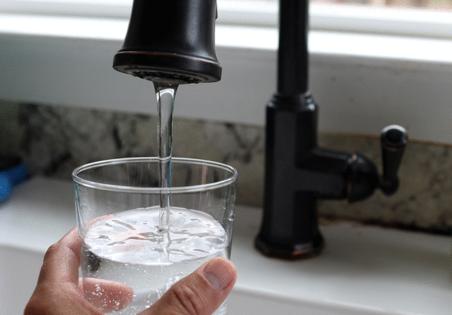Florida moves closer to banning fluoride from drinking water
Published in News & Features
For decades, most Florida residents could turn on their taps and get a tiny amount of extra fluoride, a dose health experts say provides huge dental health benefits.
But that will likely change soon.
On Tuesday, the state House passed a wide-ranging agricultural bill that prohibits local governments from adding any health-related additives to its drinking water supplies.
State Rep. Kaylee Tuck, R-Sebring, one of the bill’s sponsors, said fluoride is among those banned additives, even though it’s not mentioned in the proposed legislation.
The bill — which was approved by the Florida Senate April 16 — now heads to Gov. Ron DeSantis, who almost certainly will sign it into law. Florida would follow Utah, which became the first state to ban fluoridation this year.
Supporters of Florida’s legislation said they agreed fluoride is beneficial to dental health. However, they called it a matter of personal choice.
“This is not about fluoride. This is about your liberty,” said state Rep. Danny Alvarez, R-Dover. “Does the government have the right to put medicines and drugs and chemicals in your body that you did not consent to?”
Fluoride, a mineral naturally found in water and the soil, has been added to public drinking water systems around the country since 1945 after it was discovered to help prevent cavities and other forms of tooth decay. Medical organizations have called fluoride safe and among the greatest public health achievements of the last century. In Florida, utility providers add enough fluoride to bring levels to 0.7 parts per million — or about three drops in a 55-gallon barrel of water.
But ending fluoridation, once a fringe issue, gained support after state Surgeon General Joseph Ladapo last August spoke against the practice. He said most toothpastes and mouthwashes today provide enough protection against tooth decay.
Robert F. Kennedy Jr., who became secretary of the U.S. Department of Health and Human Services this year, has also expressed concerns about the safety of water fluoridation.
Opponents of the recent anti-fluoride push blasted Florida’s bill as a detriment to poor families who cannot afford good dental care.
“This bill doesn’t hurt the wealthy. They’ll keep seeing private dentists, getting their expensive treatments and flashing their perfect smiles,” said Daryl Campbell, D-Fort Lauderdale. “But for everyday Floridians, who rely on water from their taps to protect their kids, this bill takes a safe and proven and affordable public health tool and rips it away. … It says: ‘If you can’t afford it, too bad.’”
Rep. Anna Eskamani, D-Orlando, who also opposed the bill, said local governments should have the right to decide whether to fluoridate their drinking water.
Public water fluoridation helps every Floridian “regardless of income, education or access to health care,” she said. “It’s a simple, cost-effective, public health measure.”
In the past several months, more than a dozen Florida governments have moved to discontinue fluoridation — including Lake Mary, Longwood, Tavares and Leesburg.
This month, Seminole County became the largest utility provider in Central Florida to stop adding fluoride to its drinking water before distributing it to about 40,000 customers. Commissioners made the move even after several health professionals strongly urged them to continue the practice.
Tuesday’s bill passed by an 88-to-27 vote along party lines in the GOP-dominated House. It also would prohibit the labeling of plant-based foods — such as almond milk — as related to poultry, meat, milk and eggs. But Florida’s labeling ban would not take effect until at least 11 other Southeastern states enact similar prohibitions.
_____
©2025 Orlando Sentinel. Visit orlandosentinel.com. Distributed by Tribune Content Agency, LLC.







Comments